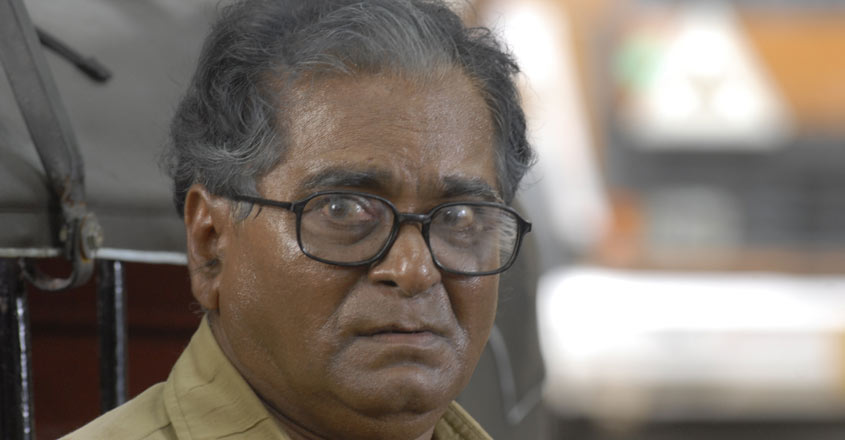Filmmaker Lal Jose, in the year that marks the twentieth anniversary of his film-making career, has made his most jaded film. Very little of this 142-minute-long romantic-drama, laden with several forgettable song sequences, make any sense. Scenarist Sindhuraj’s writing is at its blandest. It uses a pile of stereotypes for characters who go from one trite situation to another, trying to evoke laughter and drama in vain.
The protagonist, Achuthan (Kunchakko Boban), a staunch devote of Lord Krishna, loses his job as a local grocery store assistant after his gets involved in a fake burglary case. The next day, he gets his hands on a letter that a single mother had written to God, seeking divine intervention to solve a crisis her teenage daughter, an engineering student, is stuck in. Achuthan, rather than looking for an alternate job and fix his life that seems to have hit a rock-bottom, starts sneaking into the family’s attic every night to scour through the girl’s old photographs and notebooks, and watch her from the hole above her room. One time, he even gets his hands on her phone from which he makes a phone call to her ex-lover who has been blackmailing her using some photographs he clicked in the past. This creepy invasion of privacy is sugarcoated using romantic song numbers and some glossy cinematography.
That Lal Jose still makes use of regressive plot tropes such as an ex-lover who blackmails women using photographs clicked during their courtship says that the veteran director has ran out of ideas. And the blackmail material is a laughable collection of seemingly harmless selfies. The film is a watered down version of Ranjith’s acclaimed Nandanam, though with some gender reversals. In Nandanam, Lord Krishna himself descends to the earth to help a damsel in distress, Balamani, marry her upper-class lover. Here, the protagonist is a man who believes Lord Krishna has empowered him to help a woman. Both the film use props like the sound of temple bells, and dramatically placed pictures of the Gods that hint that everything is a divine plan. More importantly, both the films’s lead women are meek and conservative, who think of themselves as powerless victims in need of a male protector. If Nandanam grants Balamani a great deal of screen-time, Lal Jose presents Jaya as a timid woman without any agency. She doesn’t speak more than a few lines during the course of the film, and wouldn’t know of Achuthan’s existence until the last scene. Yet, the film forces in at least two romantic duet sequences where Achuthan imagines singing and dancing with her on meadows and strange places that look like a temple’s sanctum sanctorum.
Recommended
Achuthan is an ambivalent character. He is a simple villager who lives by non-violent ideals on most of the days, and in certain other scenes, he turns into a vigilante action hero. There are numerous sub-characters in the film who fill the frames with no motive in particular other than being part of the crowd. One of the villains in the film that is set against the backdrop of a religion, invested in beliefs that borders on superstition, is a local communist party. The film presents the party men as unethical non-believers, and to make the point, there are scenes where they are seen drinking, consuming meat and hoarding lethal weapons. This is in stark contrast to the lifestyle of the rest of the village that frequents to the temple and conforms to religious standards of living. Thattumpurath Achuthan, when analysed in the scale of timeliness, is a regressive film that upholds the ways of organised religion and superstitious beliefs at a dangerous time when there is a dire need to move away from them and talk about humanity.
*****
The Thattumpurath Achuthan review is a Silverscreen original article. It was not paid for or commissioned by anyone associated with the film. Silverscreen.in and its writers do not have any commercial relationship with movies that are reviewed on the site.



